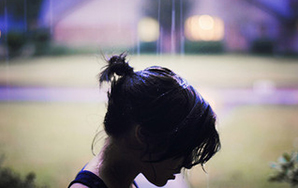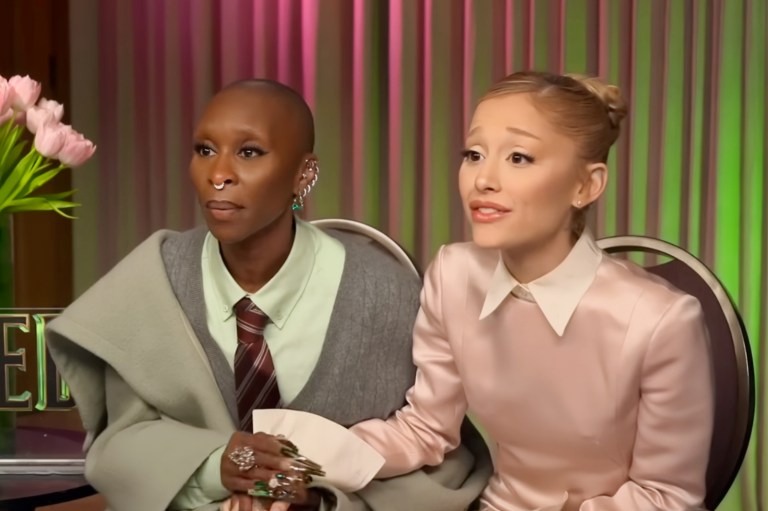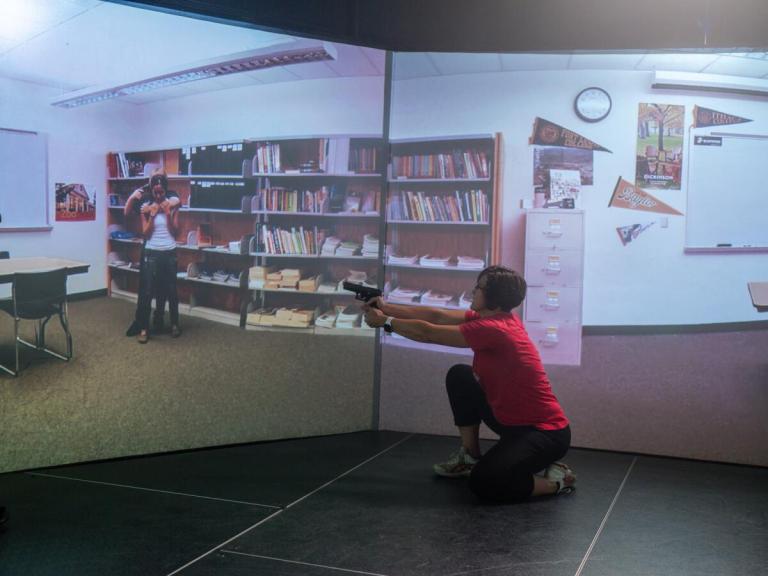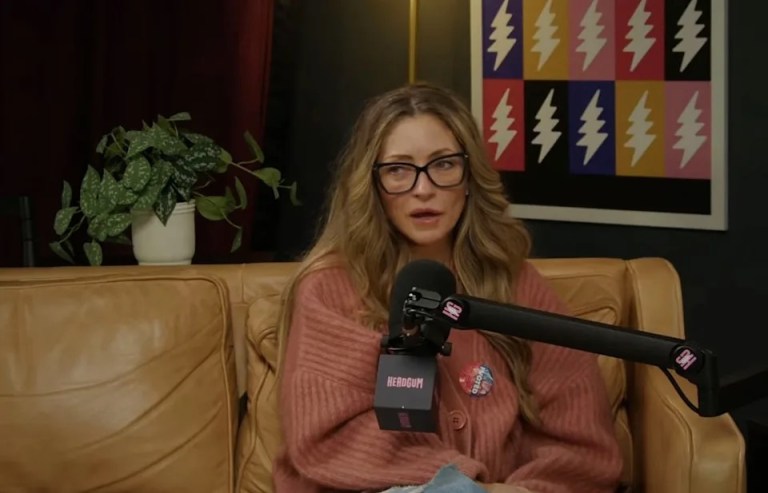
Your 20s Are Not A Cliché
I broke up with people I loved. I fell in love again. I moved. I was unemployed. I was homeless. I cut my hair short.
A lot has been written about that vague group of humans known as 20-somethings. Established writers (who have not experienced their 20s in decades) have espoused wild speculations in publications like the New Yorker and the New York Times. From panicked diagnoses of hook-up culture to banal categorizations of fickleness and immaturity, writers have profited from making a lot of negative generalizations about this particular age group. As one of the aforementioned 20-somethings, I have a few things to say about this decade of life.
First of all, there are a lot of different people who fit into the descriptor “20-something”. There are men and women, black people and white people, folks who have college degrees and people who have dropped out of high school, people living below the poverty line and people with trust funds, and gradations and combinations of everything in between. If I believed everything the media told me about my age group I would think we were a sad, apathetic group of white underemployed middle-class college grads that contribute nothing to society. But those generalizations are not universal truths, and they do not apply to the majority of 20-something Americans.
So instead of doing the disservice of talking about 20-somethings as some homogenous mass category, I will relay some important things that have happened to this white, middle-class 20-something during her 20s.
I stopped being a student. I began school at the age of 6, like a lot of people. My first memories are in a classroom, with a teacher and other students. I was almost held back from first grade, but learned very quickly that if I did well I would be rewarded. The older I got the greater these rewards became. When I was 13 “college” entered my lexicon. College became the thing I worked for: the reason I did my homework, the reason I played soccer, the reason I took calculus (something I have subsequently never used. Not once.). The thing is, I was working so hard to be the person I was told to be that I never took the time to think about the things I cared about or the person I wanted to be. I always had a teacher to impress, an assignment to devote my life to. So by the time I ended up in college I was undecided in an interdisciplinary school in the middle of NYC and I felt completely lost. But operating under the same rules I lived under my entire life I worked really hard, picked a major I didn’t really care too much about, studied a lot and graduated a semester early. Without school I had no idea what to do. I got a job that I grew to hate and could barely pay my rent. I felt lost. Unstimulated. Misguided. Depressed. But you know what? Without a teacher to tell me what to do and a grade to earn I started reading shit I cared about. I started doing things that interested me – not because they would look nice on a college application but because I truly cared about them. I started caring about the world around me way more than I ever did when I was surrounded by the walls of a school. I became involved in politics. I volunteered. I became truly unbound.
I began to truly appreciate my family. If you have siblings then you know it is really hard to honor your relationship with them 24/7. It is like a dysfunctional partnership that you are born into. Growing up my brother and sister were both the centers of my universe and the bane of my existence. We had a built in life together: dinners, family vacations, school time (we all went to the same school from kindergarten through 12th grade). However once I graduated from high school and moved out of my parent’s house, I began to realize that these formative relationships take time and effort. But it wasn’t really until my little brother moved to the West Coast to go to school that I began to understand how precarious sibling love is as an adult. I was living in NYC, he was living in Washingtonand my older sister was living in Nicaragua. This meant that not only did we rarely see each other, but that we hardly ever saw each other all together. It was in my twenties that I first started cultivating individual relationships with my siblings. It was then that I realized that I wanted these people in my life as an adult. More important than simply loving them, I began to like them.
For the first time, I felt responsible for my parents. Much like my siblings I also stopped taking my parents for granted, and ever so slightly I shift happened in responsibility. Things changed, they got older, and I began to call them, worried, on the weekends. I was concerned about their financial future, their health, the maintenance of their house. We established an adult relationship, one that didn’t allow me to simply be dependent on them. They asked me for my advice as frequently as I asked for theirs. I guess somewhere along the way, I just stopped being their child.
I traveled. Alone. At the age of 23 I moved to another country. Not visited; moved. I enrolled in a graduate level Gender Studies program in Budapest, Hungary. I didn’t speak the language (the school was taught in English) and had never been to Europe before. When I made the decision to move, I am not entirely sure what I was expecting but whatever it was did not reflect the reality of the situation at all. I arrived in the city completely unprepared for life abroad. I met people from all over the world who challenged the way I understood my identity. I was surrounded with non-Americans who made me realize how shitty the U.S. can be to the rest of the world. I learned about the politics of passports, how I could travel with ease basically anywhere I wanted while my friends would have to apply for visas months in advance – and still be denied access to certain places. I learned about other places in the world, about customs that were different than my own, about food that tasted like nothing I had ever had before. I learned about palinka and langos. From the moment I woke up to the moment I went to sleep I was constantly challenged. Whether it was asking for directions or ordering coffee – nothing was guaranteed. At the same time there were moments when I felt utterly anonymous. Local Hungarians didn’t recognize the cultural signifiers that I displayed the ways that kids living in Bushwick did. It was freeing. I felt less judged. The entire experience was confusing, disorienting, challenging and ultimately, one of the most rewarding times of my life.
I took risks. I quit jobs. I broke up with people I loved. I fell in love again. I moved. I was unemployed. I was homeless. I cut my hair short. I dyed it. Blonde. Blue. Pink. I stopped drinking. I started drinking again. I ate meat for the first time in 15 years. I danced. A lot. I cared about the world more than I could ever remember before. I threw away all my makeup. I lived in the moment. I slept in. I woke up before the sun came up. I played music. I was broke. I still am broke. I stopped weighing myself. I stopped working out. I stopped hating myself. I started over more times than I can count.
I fell in love. With myself. As a lifelong monogamist, it took being single to really fall in love. I was basically in different relationships from the time I was 15 to 23, each one requiring a large amount of dedication, time and cultivation. I began to only see myself in this context, a reflection of the person (man) I was with. After I broke up with my partner in grad school, I spent my first days of an adult as a single person. This time was important for a lot of different reasons. In a Gender Studies program, I had the language to challenge gender norms I had been replicating my entire life. Existing outside of a heterosexual relationship did something else: it drastically changed the way I felt about my body. I stopped focusing on all the imperfections I was taught to obsess over. I questioned my compulsive need to feel feminine, my need to fit in, to look “pretty”. I felt more myself than ever before. Being single gave me time to nurture my uniqueness, my quirks, and my passions. Most importantly? I started trusting myself. I believed in the decisions I made. I stopped looking to other people for validation. And even though I am definitely not happy all of the time, once I really connected with myself, I felt a type of happiness that I have never experienced before.
I moved home. Anyone who has lived in NYC long enough will tell you how difficult it is to leave. There is so much happening at any given moment, you are exposed to so many different types of people, and perhaps most importantly there are plenty of different jobs available (jobs you have to fight tooth and nail to get — but still). There is a reason why so many people make the mass exodus to this East Coast metropolis. That being said, New York is not where I grew up, and my family did not live there. One day on my two-hour subway ride home from work it struck me: I wanted to move home. I wanted to live close to my family. I wanted to live in the Midwest. And so in the span of a month I convinced my partner to move, transitioned out of my job, and hauled all my crap halfway across the country. At first it was really hard. I left everything I had known in my adult life to come home to a place I hadn’t lived since I was in high school. I lived in my parent’s house. I didn’t have a job. I didn’t have close adult friendships. It is a lot easier to enjoy living with your family theoretically than it is in actuality. But you know what? Being close to such a strong built-in support system I had time to think about my life. Without the responsibility of paying New York rent, I had the financial space to take some time — for myself. I started writing. I started taking more photos. I started over. And I had to confront the failure that I associated with leaving New York, the failure that I associated with moving home. You know what moving home really made me do? Grow up.
The thing about 20-somethings is that they are people: complicated, diverse and fractured. My twenties have been a time of experimentation, failure, laughter, love and growth. I am not the same person I was when I was 21, I doubt anyone is. The past seven years have made me reinvent myself time and time again. But everyone experiences their twenties differently, and in reality the category of 20-something is not newsworthy — it is meaningless. I mean think about it. Your twenties probably didn’t/don’t look anything like mine. Did they? ![]()











